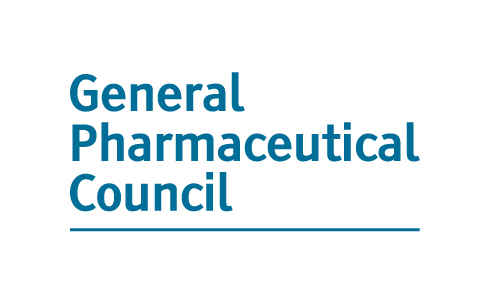The results are in: pharmacy responds to the general election results
)
On Friday 5th July, we woke up (those of us who hadn’t stayed up all night to watch the results come in!) to confirmation that the exit polls were correct, and Labour had surpassed the magic number of 326 and had been elected the new government.
At the time of writing this, we do not yet know who will be handed the pharmacy brief, however we do know that Wes Streeting, as the new Secretary of State for Health and Social Care, has appointed Steven Kinnock to the role of Care Minister, and given Karin Smyth (a former NHS manager) responsibility for reform. We also know that two registered pharmacists are taking up places in the House of Commons as Labour MPs – a return for Taiwo Owatemi, and a win for Sadik Al-Hassan.
While we await the announcement of the pharmacy brief, the sector has been reacting to the results. The sector was united in congratulating both Sir Keir Starmer and Wes Streeting, while some also took a moment to recognise those pharmacy colleagues who had been elected.
Malcolm Harrison, Chief Executive of the CCA, said “We congratulate Sir Keir Starmer on becoming Prime Minister. We look forward to working with the new Secretary of State and Health Ministers to secure the best outcomes for patients and best value for taxpayers.”
The CEO of Community Pharmacy England, Janet Morrison, said “We would like to welcome the new Secretary of State to his role. We worked with Wes and his policy advisors whilst they were in Opposition, and have been encouraged by his recognition of the critical pharmacy funding pressures and support for the sector on the campaign trail.”
Dr Leyla Hannbeck, Chief Executive Officer of the IPA, said “Congratulations to all the new MPs for taking the steps to become parliamentarians, we applaud you and look forward to working with you.”
NPA Chief Executive, Paul Rees, said “We congratulate Keir Starmer and the Labour party on their victory in the general election. We are excited to work with the new government to show how a properly funded pharmacy network can cut GP and hospital waiting times and dramatically improve the nation’s health.”
Finally, the PDA said “The PDA works constructively with parliamentarians and governments formed by any party in each of the UK nations. We look forward to seeing who is appointed into key roles including Health Secretary, Pharmacy Minister and Chair of the Select Committee.
New Ministers will need to deal with many issues and in some instances ensure a better direction than we have seen over recent years while the turnover of ministers has been at record rate.
As the largest pharmacist membership body we have a responsibility to ensure that the voice of pharmacists, and an understanding of the profession and its potential is present in the corridors of power. We also congratulate Taiwo Owatemi and Sadik al Hassan, two pharmacists elected as MPs and celebrate having these professionals serving in Westminster.”
Unsurprisingly, the sector was also keen to reiterate its hopes for the next steps for Wes Streeting and his ministerial colleagues.
Malcolm Harrison highlighted that “In their manifesto, the Labour party set out a compelling vision for primary care reform. Harnessing community pharmacy is crucial to each of the vision’s central tenets – moving greater care into the community, the return of the ‘family doctor’ and a greater focus on prevention.
We’ve made no secret of the pressures community pharmacies face and how these are impacting patients. The sector needs additional funding to halt the worrying trend of closures and to ensure patient access to medicines is maintained. Furthermore, greater investment is needed if community pharmacies are to play an even bigger role in helping the NHS to overcome the backlog in primary care”.
Meanwhile, Janet Morrison focused on the contract, saying that CPE “look[s] forward to further strengthening Wes’ connection with community pharmacy and to working constructively with him and his colleagues to secure a sustainable future for community pharmacy that also supports the new Government’s health ambitions. This includes early discussions to assure the future for this critical local healthcare network through the conclusion of the 2024/25 CPCF negotiations and to explore Labour’s interest in developing a community pharmacy prescribing service.”
Leyla Hannbeck drew attention to funding and the role of community pharmacy in communities, stating that “Community pharmacies are pillars of their communities and wherever you look to improve population health productivity and growth community pharmacy is at the heart of those solutions. Investing in our sector to save taxpayers’ investment and adding efficiencies to the system will remain the centre piece of IPA’s strategy to influence government thinking and choices in health policy.
We must never forget that the deficit is no longer £1.2 billion but it is now likely to be in the billions. As each month passes pharmacy owners become deeper in debt and further away from being a viable solution to the challenges of the NHS. This must change urgently.”
Finally, Paul Rees of the NPA highlighted closures and medicines shortages, and echoed others on the importance of community pharmacy in the system, saying “We have left the Labour team in no doubt that pharmacies are suffering from a decade of cuts. Every time we have met Wes Streeting – in all likelihood the next Health Secretary – he has spoken warmly about community pharmacies and last week he backed the NPA’s national day of action against pharmacy underfunding, saying that pharmacists across England have been 'driven to desperation'.
He [Wes Streeting] talked about the scale of closures and added: 'Labour wants to reverse this shocking trend and put pharmacies at the forefront of our health service'. Now he has to deliver - action is needed immediately to stop the pharmacy closures that are leaving many patients without convenient care close to home.
We have met Labour’s health team repeatedly to ensure they appreciate the true value of our amazing community pharmacies and share our vision for an expanding clinical role for community pharmacy that cuts GP waiting times and revolutionises primary care. We will also keep up our dialogue on medicines shortages, which have become a distressing part of everyday life for patients and pharmacy teams in all parts of the UK."
So, there is no shortage of things for Labour to start working on, and that is just in the sphere of community pharmacy!


)
)
)
)
)
)
)
)
)
)
)
)
)
)
)
)
)

.png/fit-in/500x500/filters:no_upscale())
)
)
)
)
)
)
)
)
)
)
)
)
)
)
)
)
)
)
)
)
)
.png/fit-in/1280x9999/filters:no_upscale())
)
)
)
)
)
